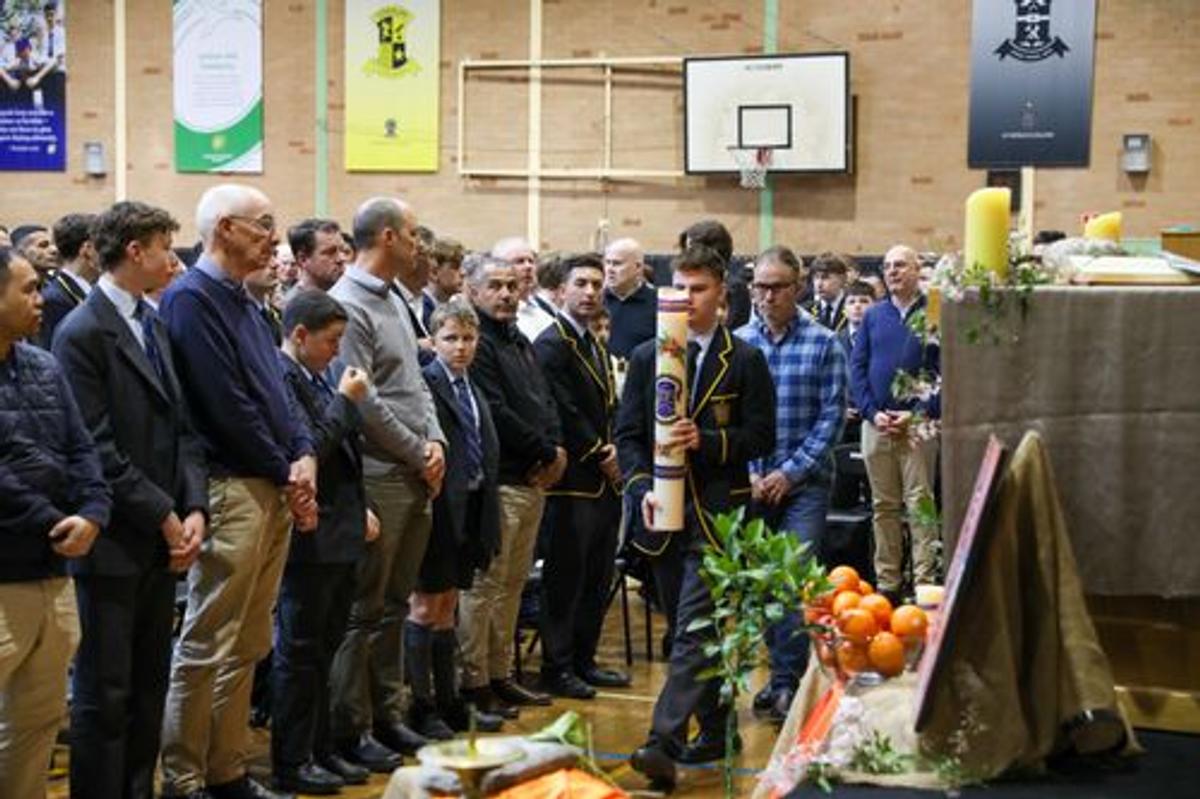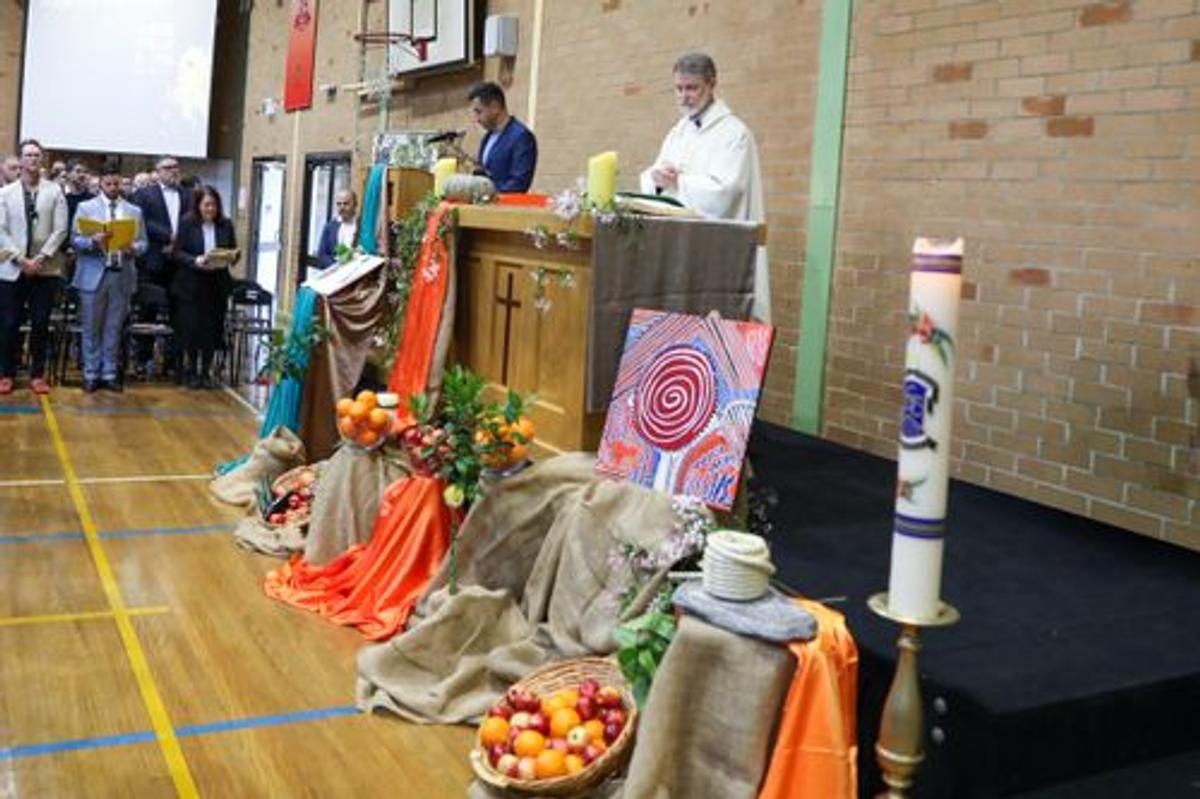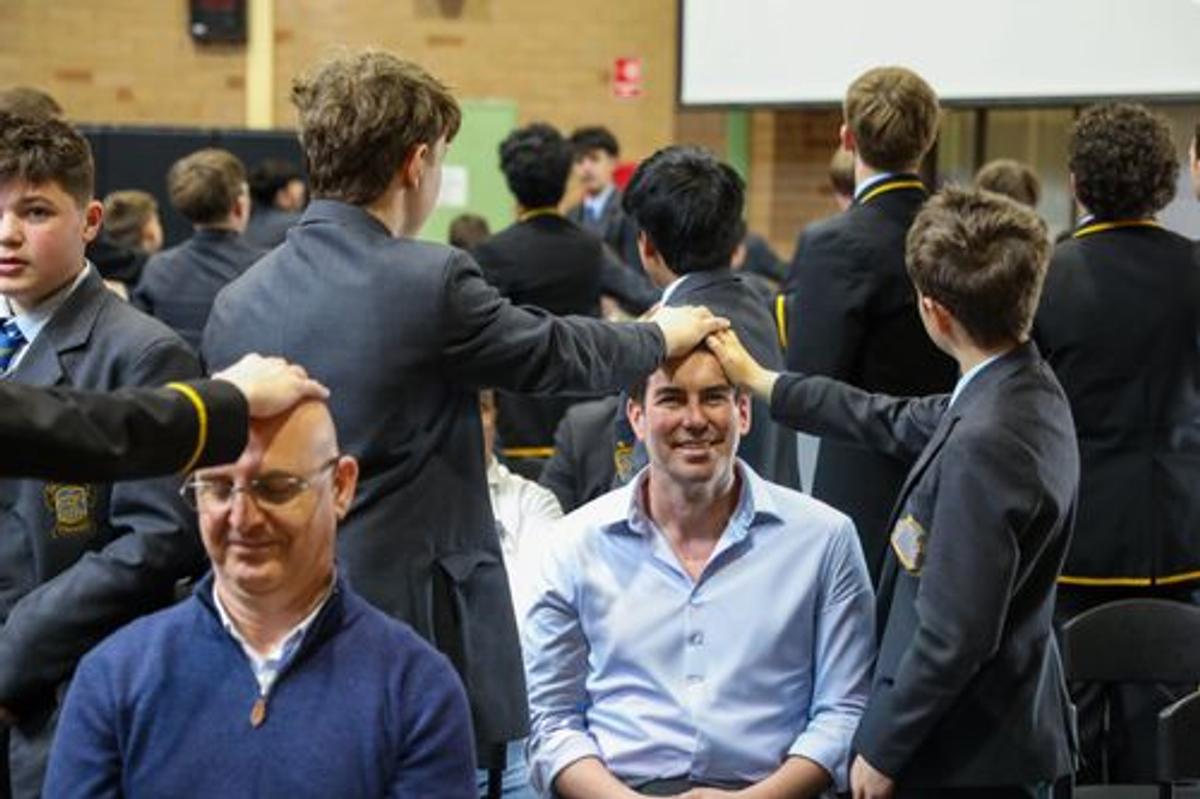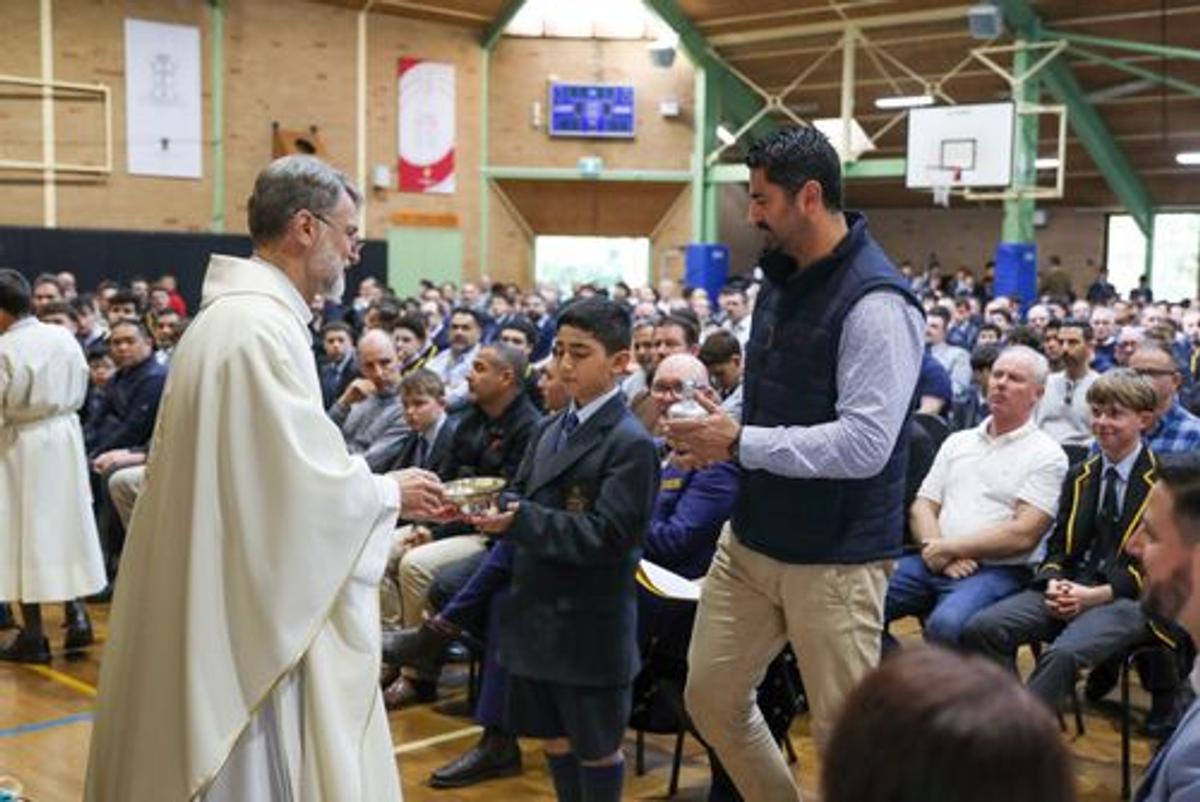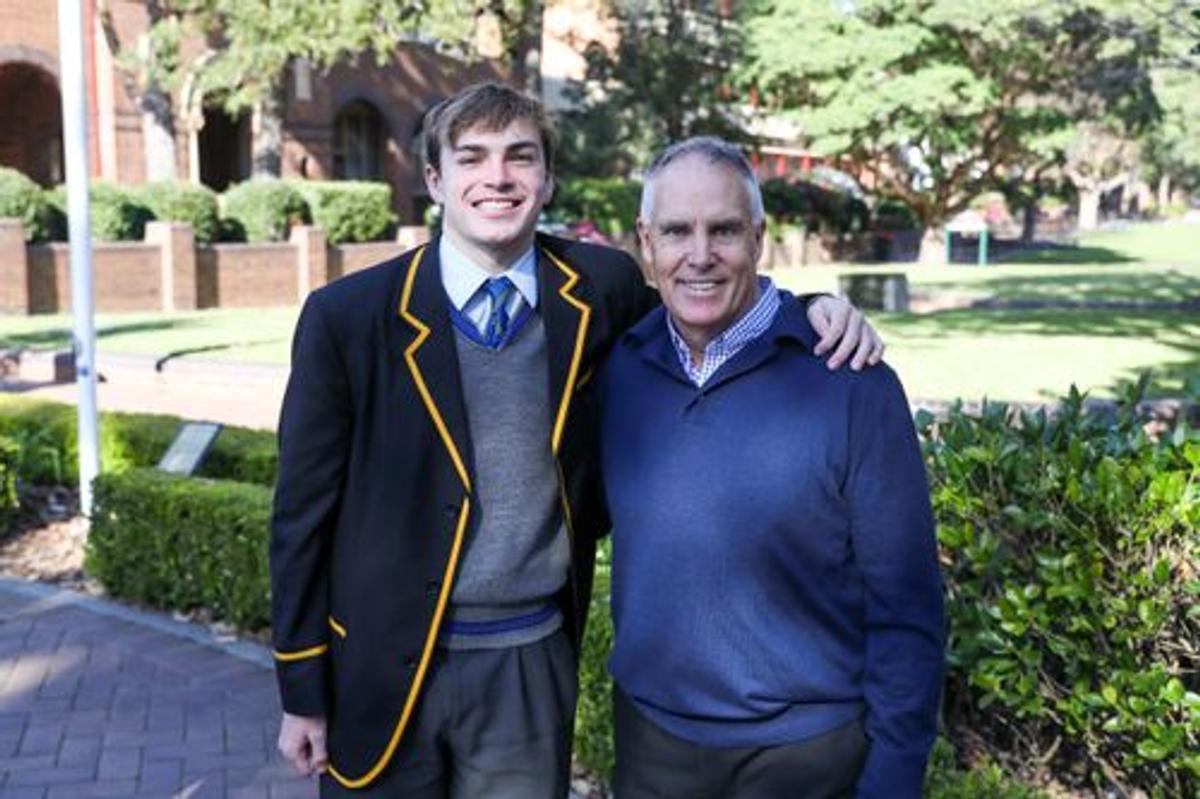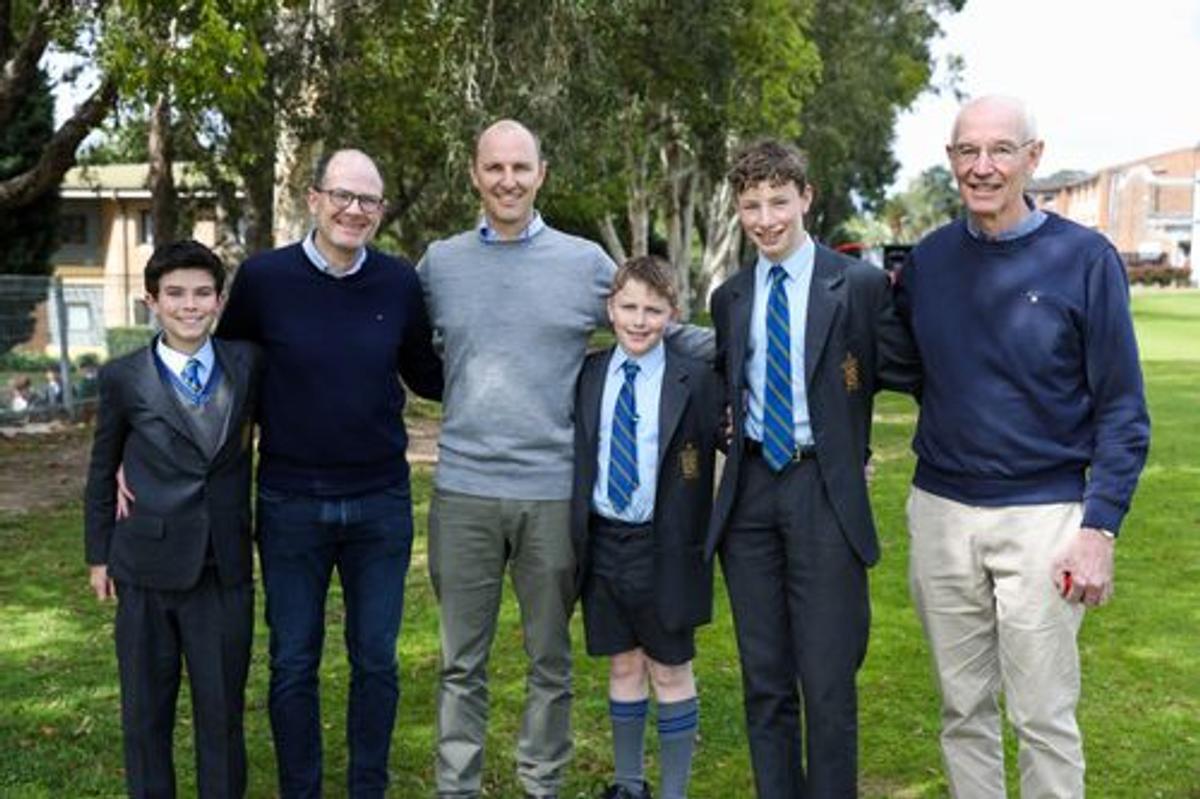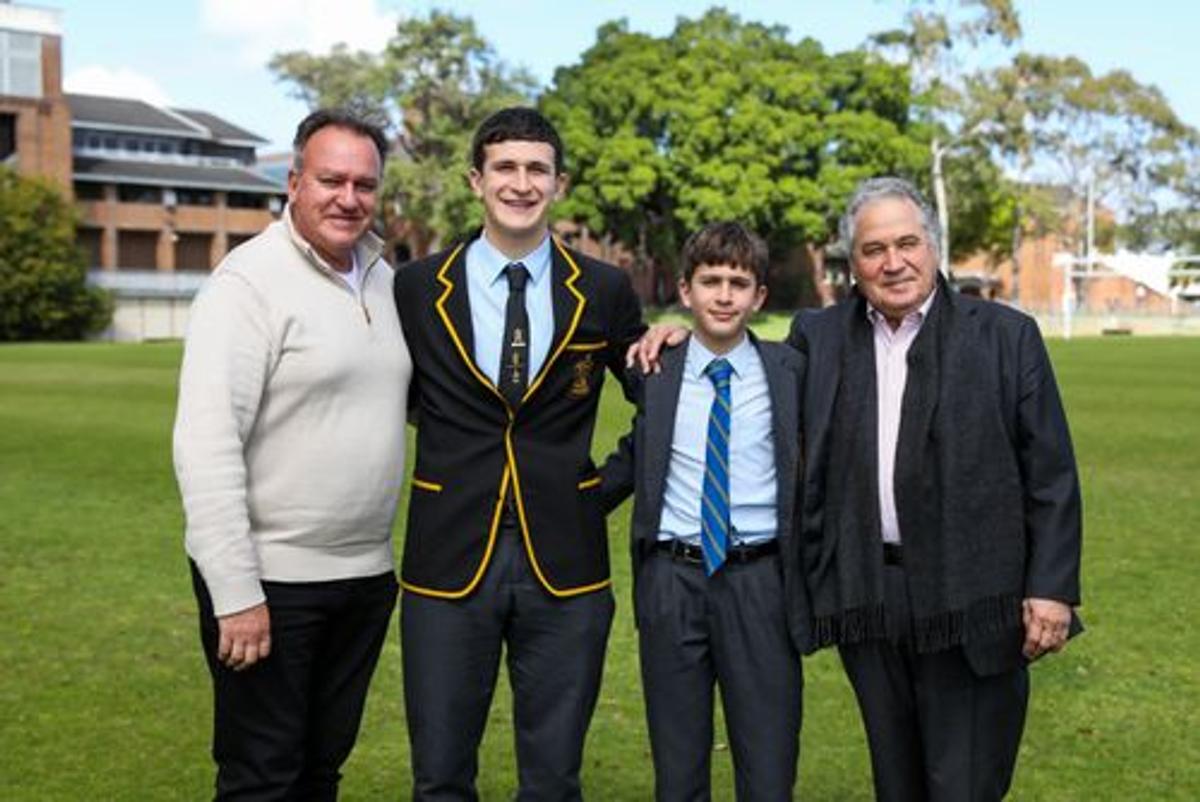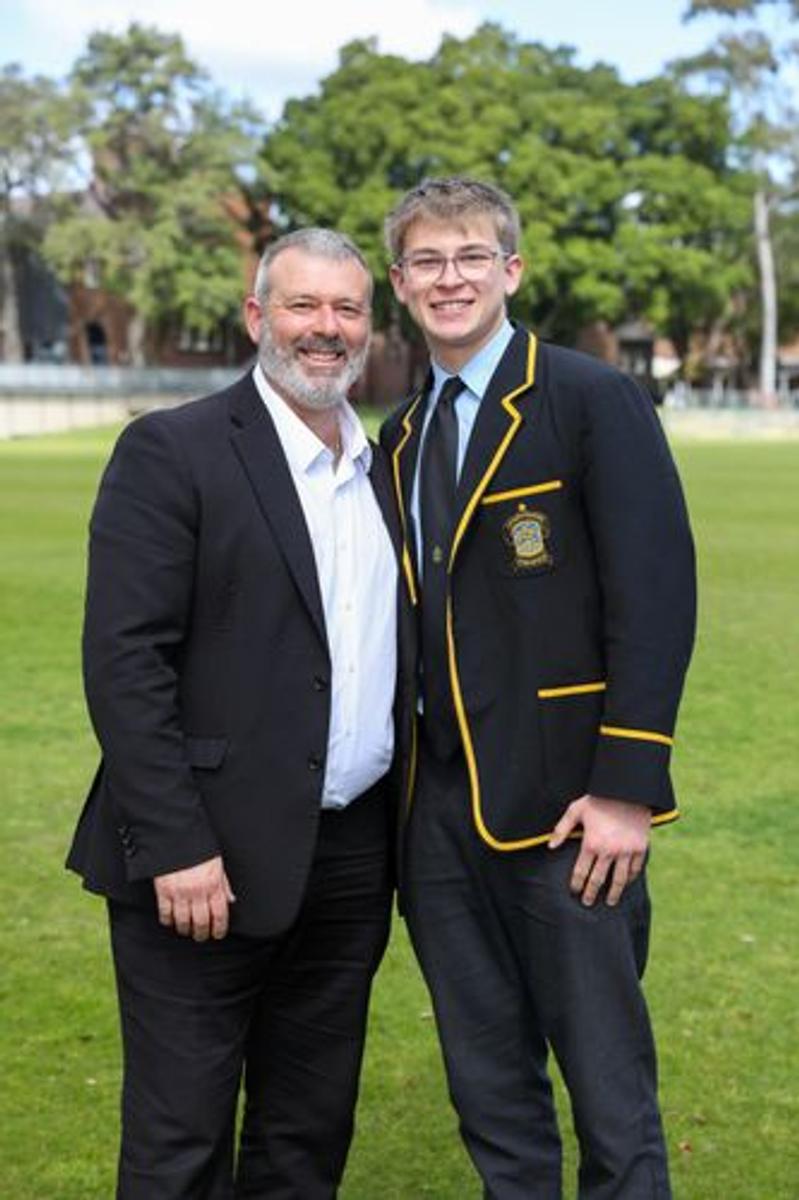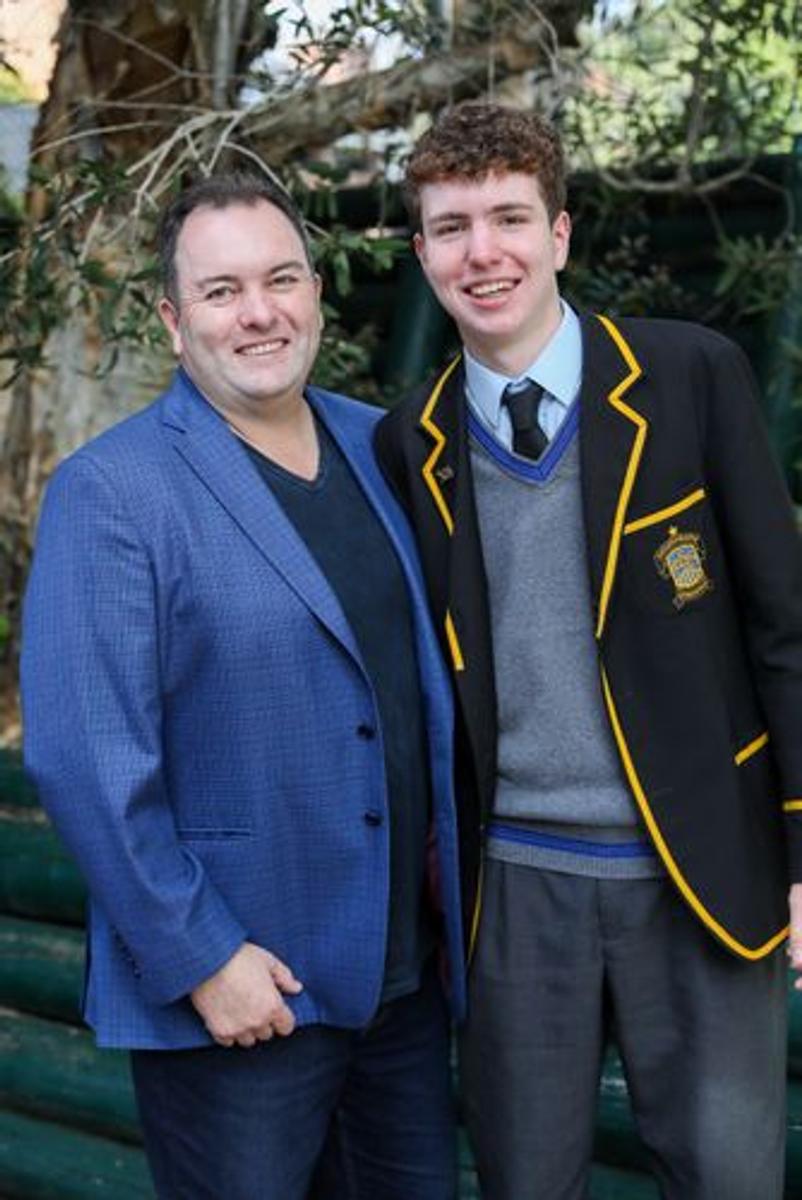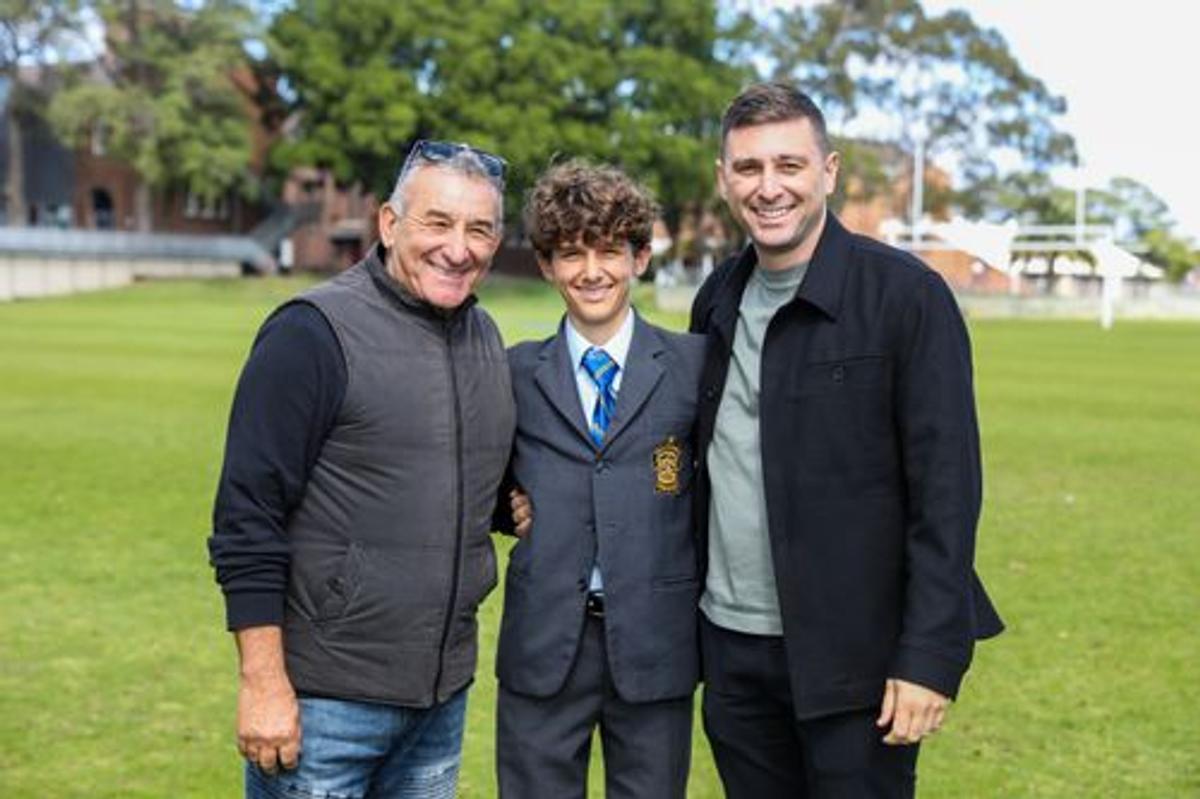Principal
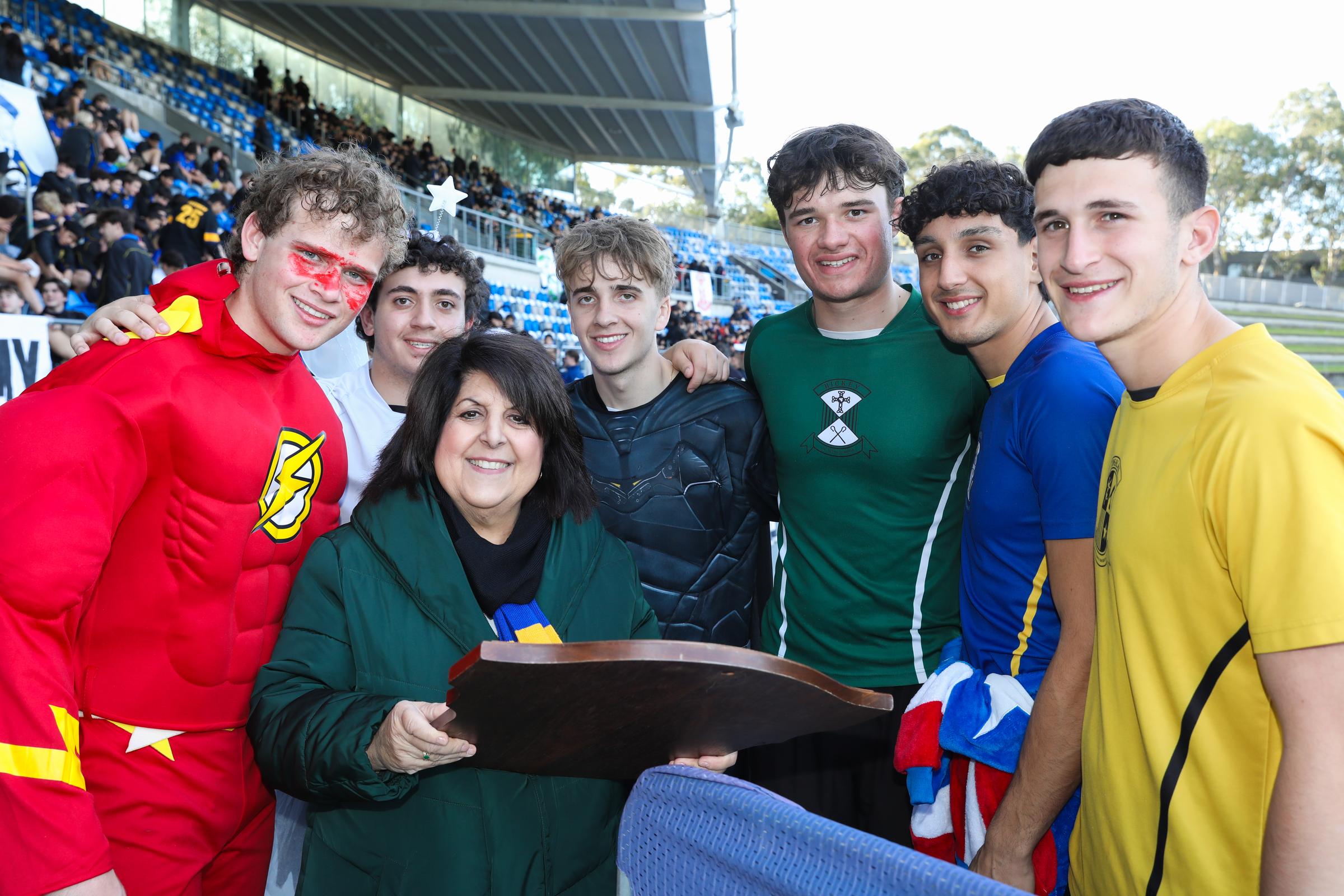
Celebrating Creativity, Courage and Craftsmanship
Last week, our College community had the privilege of gathering for the annual HSC Major Works Exhibition—a showcase of our students’ final works in Visual Arts and Technological and Applied Studies (TAS). Held in the Crichton Building and the Mary MacKillop Building, the exhibition was not only a celebration of creative achievement but also a powerful expression of the liberating education we seek to provide in the Edmund Rice tradition.
Each piece on display, whether an artwork, a design project, or a piece of crafted engineering—represented a journey of deep thinking, risk-taking, and sustained commitment. Our students have not simply completed “projects”; they have made something meaningful, something that speaks of who they are and what they care about. Their major works are windows into their passions, questions, values, and technical skills. They are also reminders that education at its best helps students find their voice—and share it with courage and integrity.
I commend our Visual Arts and TAS students for their diligence, imagination, and resilience. It is no small thing to bring a work to completion, especially under the pressures of HSC timelines. These works reflect not just talent, but character.
I also extend my deep thanks to our exceptional staff whose expertise and mentorship have shaped these works and the young people behind them. In Visual Arts, I acknowledge Mr Anthony Porra (Head of Visual Arts and their teacher), whose passion and guidance have inspired our artists to produce works of true depth and creativity. In TAS, we thank Mr Ricky Istifan (Acting Head of TAS) and Mr Matthew Herro, Mr Lorenzo Fontana, Mr Jonny Menck and Mr Kieran Gibson (their teachers) for their outstanding support of our students across Design and Technology and Industrial Technology (Timber Products and Furniture Technologies).
To our parents/carers and families: thank you for the countless ways you have supported your sons—through late nights, procurement of materials, creative blocks, supply runs, and words of encouragement. Your partnership is vital to all we do at the College, and your support has made this exhibition possible.
In the spirit of Blessed Edmund Rice, this exhibition reminds us that every learner is called to “do and love the right”, to create with purpose, and to share their gifts generously with the world.
Congratulations to all involved.
Screen Time and its Effects on Young People
In my years in education, one of the biggest shifts I’ve seen is the ever-increasing pull of screens on kids. It’s not just the content. There’s a deeper neurological reason why they can’t put down their screens. Blame it on a neurotransmitter called dopamine.
Understanding how dopamine works makes coaching kids about healthy and smart screen time use easier. It feels fantastic! Dopamine is the brain’s ‘feel-good’ chemical.
Traditionally, simple activities such as playing with friends or enjoying a tasty treat triggered the release of healthy dopamine for kids. But today, kids get massive hits of dopamine from a far less wholesome source: their screens.
Every swipe, every like, every new video that pops up – it’s a shot of dopamine.
Social media feeds and endless streams of short-term videos are the worst offenders.
The unpredictability of what comes next keeps kids hooked, constantly chasing that next little hit. It’s so addictive. The constant stimulation creates an addictive feedback loop. Kids’ brains become wired to expect this instant gratification, making it harder to find satisfaction in less stimulating activities.
Dopamine’s Ripple Effect: The Brain’s Balancing Act
It’s important to know that dopamine doesn't function independently. Your brain is like a finely tuned orchestra, and when one instrument plays too loudly, it throws off the harmony. When screens continually overstimulate dopamine, it triggers a ripple effect on other essential brain chemicals, such as serotonin.
Serotonin is the brain's contentment chemical. While dopamine makes you feel excited and motivated to get something, serotonin helps you feel calm and happy with what you've got. Excessive dopamine release can disrupt the serotonin system, making it harder for kids to feel content and peaceful. They might feel good while they're on the screen but feel flat or irritable as soon as they put it down.
The Brake Pedal - GABA
Your brain has a natural "brake pedal" called GABA. Its job is to calm things down and prevent overstimulation. A flood of dopamine can suppress the effects of GABA, making the brain feel overstimulated and "on edge." This leads to increased anxiety and make it difficult for kids to relax and fall asleep.
The Alarm System - Norepinephrine
Dopamine is also a building block for norepinephrine, a chemical that's part of the body's stress response. While a little bit is good for focus, a constant high level can make kids feel hyper-alert and stressed, as if they're always in a "fight-or-flight" state.
This chemical seesaw is why simply banning screens isn't enough. Help kids understand why they feel such a strong urge to scroll.
Empowering them with knowledge about their brains gives them agency over their scrolling, rather than being at the mercy of their screens.
Holding Dopamine Conversations
Rather than simply telling your child that too much screentime is not healthy, demystify dopamine and explain its effects for kids. This will help them develop some agency over their screentime behaviour. Here’s how you can talk to them in a way they’ll understand:
Keep it simple
Explain that dopamine is like a little messenger in their brain that makes them feel happy and excited. Use analogies they can understand. For example, “Remember how good it feels when you score a goal in soccer? That’s dopamine at work.”
Connect dopamine to screens
Explain that screens are designed to give their brains lots of little dopamine hits very quickly. “Every time you see something new or get a like on your video, your brain gets a little squirt of that happy chemical.”
Highlight the downside
Help them understand that relying too much on screens for dopamine can have negative effects. “If your brain gets used to getting all its happy feelings from screens, other fun things might not feel as exciting anymore. It can also make it hard to focus on things like homework or playing outside.”
Emphasise it's not their fault
Make sure they understand that this is how their brains are wired. It’s not a sign of weakness if they find it hard to stop scrolling. This can reduce feelings of guilt or shame.
Give them Healthy Dopamine Alternatives
There are numerous other ways for kids to obtain a dose of dopamine that also foster valuable life skills and promote overall well-being. Many of these they probably already enjoy, but they’re unaware of the pleasure hit they receive from them. Here are a few ideas to suggest:
Physical Activity
Sports, such as running around the backyard or riding a bike or scooter, can be a great way to boost dopamine.
Creative Pursuits
Drawing, painting, building with LEGO, and playing a musical instrument – these activities provide a sense of accomplishment and flow.
Social Connection
Spending quality time with friends and family, playing games together, and having meaningful conversations.
Setting and Achieving Goals
Even small goals, such as finishing a puzzle or learning a new skill, release dopamine when they are achieved.
Spending Time in Nature
Research indicates that spending time outdoors can have a profoundly positive impact on one's mood and overall well-being.
Helping Others
Acts of kindness and generosity can trigger the release of dopamine, fostering a sense of purpose.
Finally….
Your role isn’t to demonise technology, but to help your kids develop a balanced relationship with it. By understanding the science behind their screen habits and offering them engaging alternatives, you are helping them make healthier choices and find joy in a wider range of experiences. It’s essential to have those conversations yourself, rather than leaving it to teachers, and help your kids discover many ways to feel good, both on and off screen. © Michael Grose 2025
Father’s Day Masses: Friday, 5 September
Last week, our College community gathered for Father’s Day Masses, presided over by Father John Hayes, a celebration rich in faith, family, and gratitude. Set within the Season of Creation, the Mass reminded us not only of the wisdom and love of our fathers and grandfathers, but also of God’s call to be stewards of the Earth.
In the Book of Proverbs, proclaimed during the Mass, we heard: “My child, do not forget my teaching, but let your heart keep my commandments… for the Lord reproves the one he loves, as a father the son in whom he delights.” This wisdom speaks powerfully to the role of fathers as guides and nurturers, reflecting the deep love of God the Father.
During the Mass, boys were invited to embrace their dads and express what they loved about them. It was a moving reminder that gratitude and love are never to be taken for granted. We also honoured those fathers and grandfathers who have gone before us into eternal life, entrusting them to the God who welcomes all into His Kingdom of Light.
As Pope Leo reminded us in his reflection on Luke’s Gospel, God’s fatherhood is marked by generosity, persistence, and unfailing presence. Even when we stumble, God never turns His back on us. In this truth, we find hope, strength, and encouragement to live with faith, love, and compassion.
Our College’s Touchstone focus this year is Inclusive Community. The Mass invited us to recognise that friends and family are gifts from God, born to support us in times of adversity. Let us continue to act with love and compassion, walking gently upon the earth and caring for one another, especially those who are vulnerable or in need.
I trust that Father’s Day renewed in all of us a deeper appreciation of the men who guide our lives, and may we also recognise our responsibility to be faithful stewards of creation, living in right relationship with God, each other, and the world entrusted to our care.
Parent Orbit App
As a parent of the College who utilises technology to access your son's information, you are aware that we are currently operating two mobile applications to facilitate this process.
Over the past several weeks, we have assisted parents/carers in transitioning to the new Parent Orbit App. The decision was made to keep both applications operational for the duration of the term, rather than abruptly discontinuing the SPC App.
This approach has led to some confusion with notifications and SMS messaging, resulting in a duplication of efforts to create, receive, and read these messages. Consequently, parents/carers have reported being inundated with notifications on their mobile devices. We have chosen to over-communicate rather than risk you missing important updates. This situation is a byproduct of running both systems concurrently.
We will discontinue the SPC App for parent use as Term 3 ends. The SPC App will continue to be available to disseminate information to students only.
If you have not yet transitioned to the Parent Orbit App, I urge you to do so and familiarise yourself with it to avoid any confusion when parent information no longer appears in the SPC App.
We also recommend that you uninstall the SPC App to stop notifications from being duplicated. For assistance, don't hesitate to get in touch with itsupport@spc.nsw.edu.au
Staff News
Mrs Natalie Katrib, previously scheduled to commence in the Religious Education department this week, will be delayed in her arrival due to personal reasons.
We wish Ms Katherine Tripodi and Mr Lorenzo Fontana well on their upcoming nuptials. Felicitations from all of us for a long, prosperous and happy marriage.
We wish Mr Tim Simpson all the best as he commences his long service leave break from next week. His classes will be covered by Mr Jon Nguyen.
Mrs Cristina Polito has returned to the College this week after extended service leave and has resumed her role as my Executive Assistant. I thank Mrs Emily Saoud on stepping into this role for the last few weeks.
In Memoriam
Please keep Harrison Ticli (Year 10) and his family in your prayers following the loss of his grandfather late last week.
We also pass on our condolences to Julius Thompson (Year 10) and his family following the loss of his uncle, Viliame Bale Tokalautawa, in Afghanistan while serving with the United Nations.
Eternal rest grant unto them, O Lord, And let perpetual light shine upon them. May their souls and the souls of all the faithful departed, Through the mercy of God, rest in peace. Amen. |
|---|
Dr Vittoria Lavorato
Principal
SPC boys can do anything!
**except divide by zero

